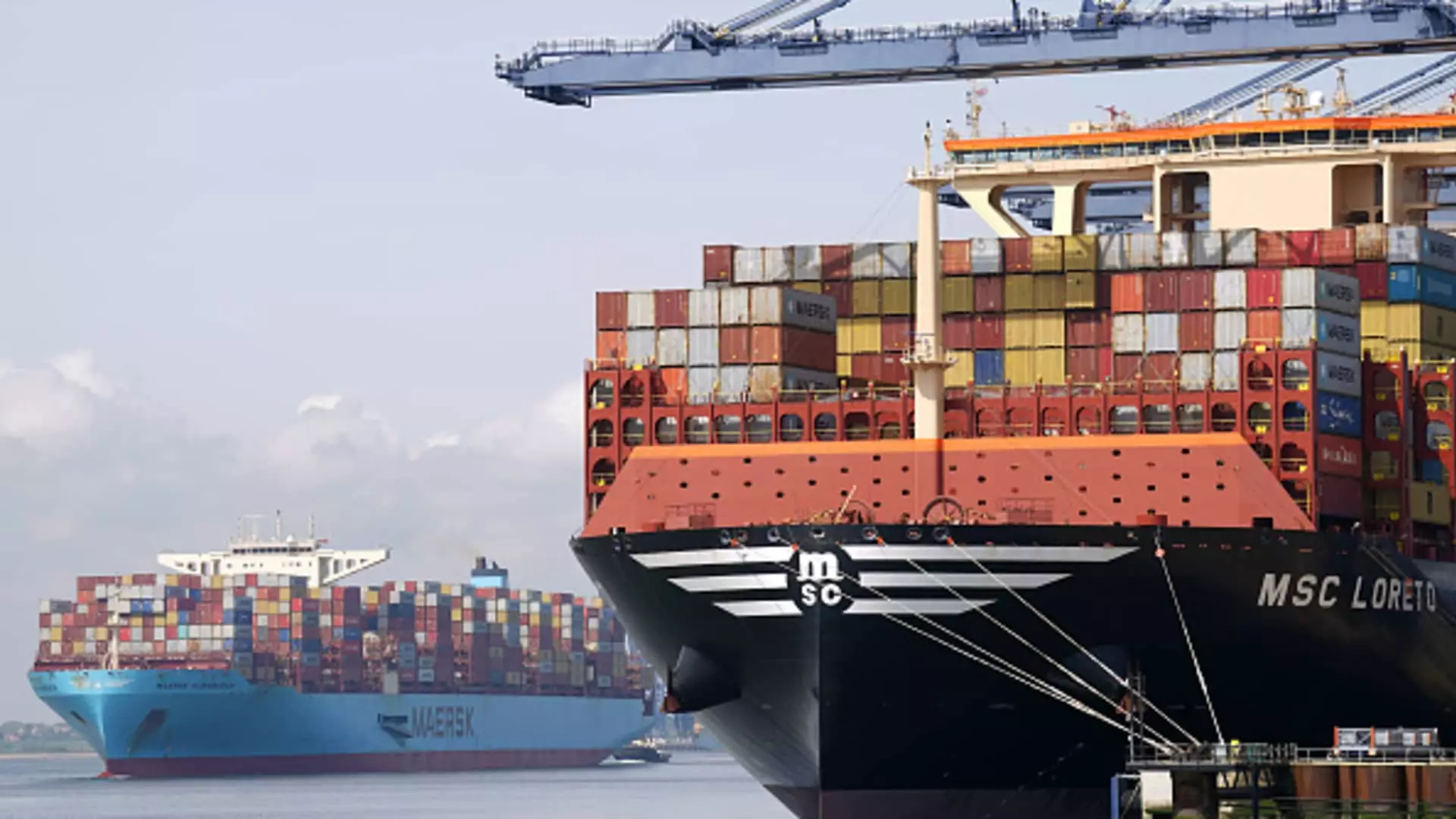As we step into the first quarter of 2025, investors find themselves navigating an economic landscape that is increasingly defined by uncertainty. The primary cause? The impact of tariffs imposed by the Trump administration—a looming cloud that threatens the stability of both local and global markets. The repercussions of these tariffs can be likened to throwing a stone into a still pond; the ripples extend far and wide, affecting various sectors in unpredictable ways. Expectations are tense, and numerous firms now face the daunting task of demonstrating resilience amidst a storm of fiscal pressure.
Luxury Goods and Consumer Behavior: Cracks in the Facade
Luxury brands like LVMH have already shown signs of vulnerability to decreased consumer spending. In the past, these companies thrived on the aspirations of buyers eager to flaunt their wealth. However, the tariffs have cast a shadow over their confidence, as they now face the reality that their “aspirational clientele” may pull back on spending. The discussion has shifted from profit margins to survival, stressing the importance of adapting marketing strategies to changing consumer behaviors.
As tensions between nations escalate, luxury brands may not only have to adapt to shifts in spending—a significant change could redefine how luxury is perceived in societies that are increasingly sensitive to economic disparities. LVMH’s muted forecast is effectively a clarion call to the industry: if you cannot meet your consumers’ evolving expectations amidst global turmoil, you risk losing their loyalty.
The Automation Sector’s Uncertainty
In a world increasingly reliant on technology, the semiconductor industry faces an unprecedented level of unpredictability due to tariffs. Take ASML, for instance. This Dutch company is at the forefront of chip-making technologies essential for numerous sectors. Their caution over tariffs reflects a broader reluctance within the tech industry to make long-term investments. When companies are uncertain about costs and demand, innovation takes a backseat, stunting growth in a sector that should be flourishing.
Analysts must question whether this insecurity spells doom for future technological advancements, or if it ultimately serves as a spur for alternative innovations. Regardless, tech giants find themselves in a quagmire as they attempt to forecast future demand without clarity surrounding tariffs or trade policies.
The Shipping Industry’s Rollercoaster Ride
Danish shipping company Maersk stands as a barometer for global trade in these tumultuous times. Their expected decline in earnings reflects a broader issue: every time tariffs are adjusted or introduced, freight rates fluctuate, causing pandemonium in global supply chains. A decline in Maersk’s earnings signifies not just a disappointing quarter, but a potential long-term downturn in international shipping.
Furthermore, it’s essential to scrutinize how Maersk’s predicament symbolizes a larger issue facing global trade. With increased liquidation of physical goods and rising shipping rates due to tariff-induced complexities, consumers will ultimately feel the prick of inflated prices, diminishing purchasing power and impacting economic growth.
Energy Companies: Between a Rock and a Hard Place
Energy giants like Shell are grappling with a dual crisis: the onslaught of tariffs and falling commodity prices. The complexity of balancing shareholder returns and cutting operational costs illustrates the precarious position those in the energy sector find themselves in. Analysts have suggested that Shell’s approach to efficiency could be their saving grace, yet the volatile oil market continues to loom as a significant threat to their outlook.
In this context, it’s crucial to question whether energy firms are merely surviving or evolving. Is a conservative approach to cost-efficiency reflective of a lack of foresight in an industry at a pivotal intersection of climate change policy and international relations? With shifting political landscapes, energy firms may need to innovate more daringly to survive in an unpredictable world.
The Aviation Industry: Shrinking Margins Amidst Hostility
Airlines such as Lufthansa find themselves in a precarious predicament. While air travel has traditionally been viewed as a resilient and growing sector, the burgeoning tensions and tariffs may lead to a decline in consumer confidence. Airlines are notorious for low margins to begin with, and with the fear of economic destabilization, any decline in travel demand can have catastrophic effects on earnings.
More than a temporary setback, the impact of tariffs on airlines could reshape travel landscapes, leading to lasting shifts in consumer behavior. The upcoming earnings report will serve as a revealing window into this industry’s adaptability amid external pressures—a test that could redefine the very structure of aviation trends for years to come.
Pharmaceutical Woes: Navigating Uncertainty
The impending potential tariffs on pharmaceuticals pose a significant threat to companies like Novo Nordisk. The uncertainty surrounding drug access in such a politically charged environment raises questions about the long-term viability of existing business models. The anticipated May results could offer some insight into how these firms plan to navigate choppy waters while safeguarding their market share against increased costs.
Ultimately, the uncertainty created by tariffs has far-reaching implications, influencing not only immediate financial results but also shaping the strategic direction of companies. Predicting how firms will adapt to these pressures remains an enigma—a question that speaks to the core of ambition in the global market. The balancing act between navigating political pressures and maintaining profitability is one that will undoubtedly define the business landscape for years to come.

